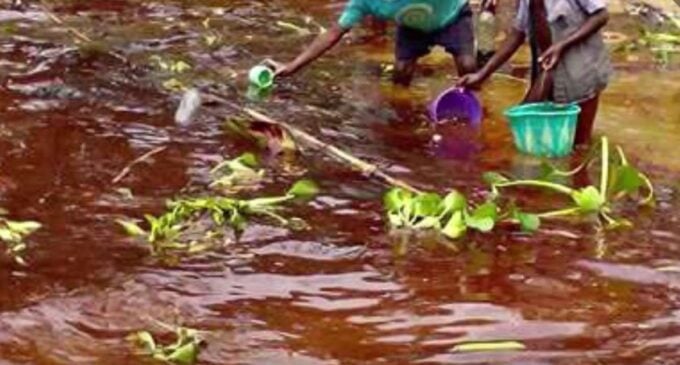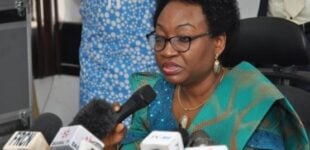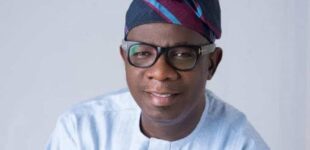2023: Why Nigerians need to discuss environmental protection

BY AREKPITAN IKHENAODE
As the 2023 general elections draw closer, one thing remains consistent in Nigeria’s political season; the absence of discussions on environmental protection. Nigerians seek candidates who will end the myriad of problems plaguing the country such as unemployment and insecurity. However, environmental issues remain relegated to the background, deemed less urgent and unimportant.
Contrary to popular beliefs, environmental problems are on par with the aforementioned issues that have remained at the front and centre of public conversations. The fact that environmental problems are not making headlines does not mean they are less deadly. They rarely stand alone. Instead, they birth and feed other problems. They affect health, economy, social status, mobility, employment, food supply, education, security and the general livelihood of a people.
In December 2021, the United Nations’ deputy secretary-general Amina J. Mohammed visited the Makoko slum in Lagos state and revealed that she saw firsthand the urgency to address the rise in the sea level. Many Nigerians rebuked her because they believed she should have seen the urgency to address their poverty instead of pandering to “western problems”. These Nigerians did not know that a rise in sea levels also contributes to their poverty – a problem we had rather not pay attention to. Sea level rise does not only mean an increased danger of flooding, it also means the erosion of beaches, contamination of groundwater and an increase in disease transmission. Lagos is one of the most vulnerable cities to sea-level rise, so paying attention was not amiss.
Environmental discourse is critical at this stage based on the magnitude of problems Nigeria has become home to. In 2018, there were 11,200 deaths linked to air pollution in Lagos – the highest in West Africa. In Port Harcourt, Rivers state, 22,077 people received treatment for soot-related conditions between 2014 and 2018. In 2017, the Guardian published that babies are twice as likely to die in the first month of life if their mothers were living near an oil spill before falling pregnant. It is important to also mention that Nigeria would be generating 72.46 million tonnes of waste by 2025 and right now, many Nigerians live close to landfills and dumpsites. Apart from the fact that Nigerians living near these dumpsites breathe polluted air and drink contaminated water, these dumpsites harm biodiversity and aid the spread of diseases.
Globally, Nigeria is estimated to be among the top 10 countries that flare gas. About 2 million Nigerians live within a 4km radius of gas flaring sites. While most are keen to talk about the waste of this natural resource, many forget that this practice is associated with reduced crop yields, acidified rain, and a variety of health issues like cancer, asthma, bronchitis, pneumonia, neurological and reproductive problems.
Environmental problems weigh more on the poor and marginalised and so, to ignore environmental problems is to substantially fail to govern, preserve and protect. To ignore environmental problems is to ignore the plights of millions of Nigerians, many of whom are unemployed or underpaid and already live below the poverty line. Many Nigerians are unable to afford food, education, medical care and the cost of relocation. These environmental problems can be solved and discussions ahead of the elections in 2023 must address this. Nigeria signed the Paris Agreement which is a pledge to halve emissions by 2030. The next elected president, based on incumbency, would most likely still be president by 2030; it means the next elections are crucial to Nigeria attaining the goals of the agreement and the sustainable development goals.
It is not enough for the government to sign a declaration or attend climate conferences. It is public knowledge that clean air in Lagos will save $2.3 billion and prevent 2,800 deaths and 155,000 hospitalisations per year but little to nothing has been done about it. As we listen to manifestoes and read proposed policy documents, we must ask those vying for public offices what plans they have for the environment. We must bring environmental issues to the table and ask how they intend to solve the menace. These aspirants must understand that if the Niger Delta is cleaned up, there will be more stability, peace and security in the region. These aspirants must be reminded of the dangers of mindless pollution, deforestation, land degradation, and chemical-intensive agriculture. Their attention must be called to the accelerated development and opportunities for employment that are possible if recycling is taken seriously.
As a people, we must drive climate and environmental conversations framed by growth and opportunities. As Moky Makura wrote: “Young Africans demonstrating for change should be holding up placards calling on their governments to provide climate jobs and climate opportunities. They should be pushing policymakers to attract the large-scale investments needed to reduce greenhouse-gas emissions significantly and create the conditions for environmental entrepreneurship to flourish.” All these we must do till our environmental problems become a thing of the past.
Ikhenaode is a writing fellow at the African Liberty
Views expressed by contributors are strictly personal and not of TheCable.















There are no comments at the moment, do you want to add one?
Write a comment